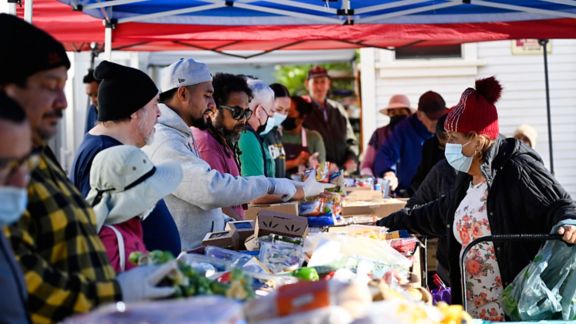Supporting a Workforce to Treat Substance Use Disorders

As part of its multi-part strategy to address the opioid crisis, the Health Resources and Services Administration (HRSA) Bureau of Health Workforce (BHW) has been expanding the nation's capacity to treat substance use disorders. In 2018, BHW expanded the National Health Service Corps (NHSC) Loan Repayment Program to include the Substance Use Disorder and Rural Community Loan Repayment Program. The new loan repayment programs increased the number of clinicians trained in substance use disorder treatment working in rural and undeserved communities. BHW also expanded its behavioral health grant programs to strengthen and expand training on substance use disorder, particularly opioid use disorder, treatment for future health professionals and paraprofessionals, including clinical training in rural and underserved communities.
To measure the success of BHW's efforts, NORC conducted a mixed-method evaluation of the NHSC loan repayment and grant program expansion. Between 2020 and 2022, NORC conducted annual web-based surveys of NHSC clinicians, NHSC sites, grantees, and students. NORC also surveyed sites that are part of the following expanded grant programs: the Behavioral Health Workforce Education and Training, the Opioid Workforce, and Graduate Psychology Education. In addition, NORC is analyzing BHW administrative data and publicly available data to evaluate program performance. Findings will help HRSA assess how these programs are working to achieve their goals to improve services to populations who are underserved across the country.
Learn More
Visit the Health Resources & Services Administration’s website to learn more about the Bureau of Health Workforce.
Related Tags
Project Leads
-
Alana D. Knudson
DirectorPrincipal Investigator -
Jennifer Satorius
Senior Research ScientistSenior Staff -
Savyasachi Shah
Principal Research ScientistSenior Staff -
Melissa Newberry
Senior Research DirectorSenior Staff










